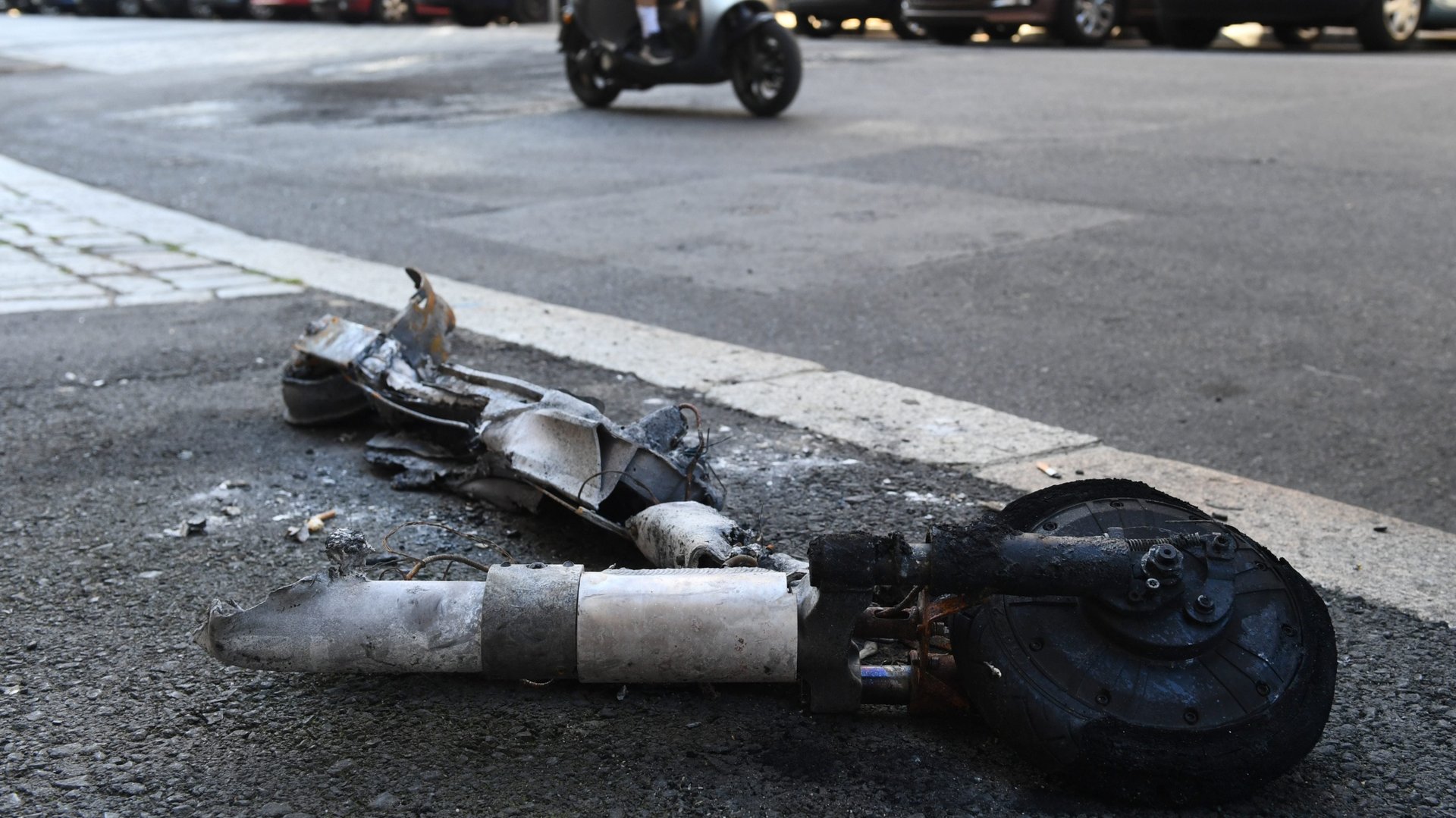A scooter pioneer has just filed for bankruptcy
The shared micromobility market is a big tent, but there still isn’t room enough for everyone. Skip, one of the first scooter-sharing companies to launch in the US, filed for bankruptcy last week.


The shared micromobility market is a big tent, but there still isn’t room enough for everyone. Skip, one of the first scooter-sharing companies to launch in the US, filed for bankruptcy last week.
The company will sell off its assets to cover its debts. Company leaders reported having between $50 million and $100 million in assets, and $10 million to $50 million in liabilities in its petition to liquidate the company in a Northern California bankruptcy court under Chapter 7 on Aug. 4.
Skip is the latest scooter startup to sink into insolvency or merge with larger companies in recent years joining Austin-based Unicorn (bankruptcy), Spin (Ford acquisition), and Boosted (Lime acquisition). The industry-wide consolidation means a few well-funded giants will soon dominate a once-crowded field aspiring to own the “last mile” in cities.
From rising star to bankruptcy
Skip first launched amid fanfare in 2018, raising at least $131 million in funding after emerging from the 2018 class of the Y Combinator accelerator. That year, it was one of only two scooter companies to win operating permits from San Francisco (its vehicles were eventually removed after one caught fire), and was the first scooter company to arrive in Washington, D.C.
Since then, Skip has struggled to gain market share anywhere else. In December of 2020, a different micro-mobility startup, Helbiz, acquired an “operating license” to manage Skip’s scooters in the US, according to the company’s representatives. Helbiz’s, which primarily operates scooters, e-bikes, and mopeds in Europe, saw the move as a way to make inroads in the US market while the country recovered from the pandemic. Helbiz said the company was not involved with the bankruptcy, as it lacks an ownership stake in the company, and Skip had not issued any public comments or responded to inquiries as of Tuesday afternoon.
The scooter market at large is here to stay
Skip’s failure does not mean dockless scooters are off the road. Scooter ridership peaked in 2019, surpassing bike shares by 2 million rides.
But the last few years have been brutal for the industry. Initially hailed as a flexible last-mile solution for urban dwellers without cars, scooters have been criticized for cluttering public spaces, posing a danger to riders, and generally being a harbinger of tech gentrification. Profits have failed to materialize as well. Despite closing investment deals valued at more than $4.8 billion during the first three quarters of 2018, micromobility companies saw investors pull back in 2019 over concerns about the companies’ financial prospects and scooters’ short lifespan.
Things only got worse during the pandemic as transportation demand in cities ground to a halt. Lime, one of the biggest remaining scooter companies, saw a 95% drop in ridership at the start of the pandemic, according to CEO Wayne Ting, leading the company to lay off 13% of its workforce.
Now that things are turning around, there are only a handful of major companies still in the market. Lime and its main competitor Bird remain at the top in the US, while Voi has dominated in Europe. Dozens of others continue to operate on a regional level, but haven’t penetrated markets across cities and countries.
That’s given Lime and Bird an opportunity to expand their reach. Bird, which recently announced an intention to go public via a SPAC in a deal valued at $2.3 billion, has acquired two other startups, Scoot and Circ. Uber invested $170 million in Lime in May of 2020 at a deep valuation discount that transferred its bikeshare and scooter brand Jump.
But the micromobility sector as a whole is expected to gain importance as people’s movement patterns change after the pandemic. A McKinsey report predicted that the shared micromobility sector will grow by 12% and that profitability of e-scooters specifically could grow by 5% in the medium term. If cities continue investing in bike lanes and other infrastructure changes that prioritize bikes, scooters, it will pave the way for today’s successful micromobility companies to see continued growth.
Correction (Aug. 11/Aug. 17): An earlier version of this post incorrectly stated that Lime had been acquired by Uber. Lime received an investment from Uber, but is not a subsidiary. An earlier version of this post also incorrectly stated that Bird had already gone public. The company announced plans in May but has not yet had an IPO.